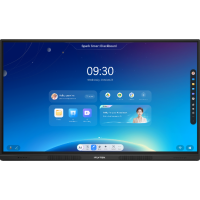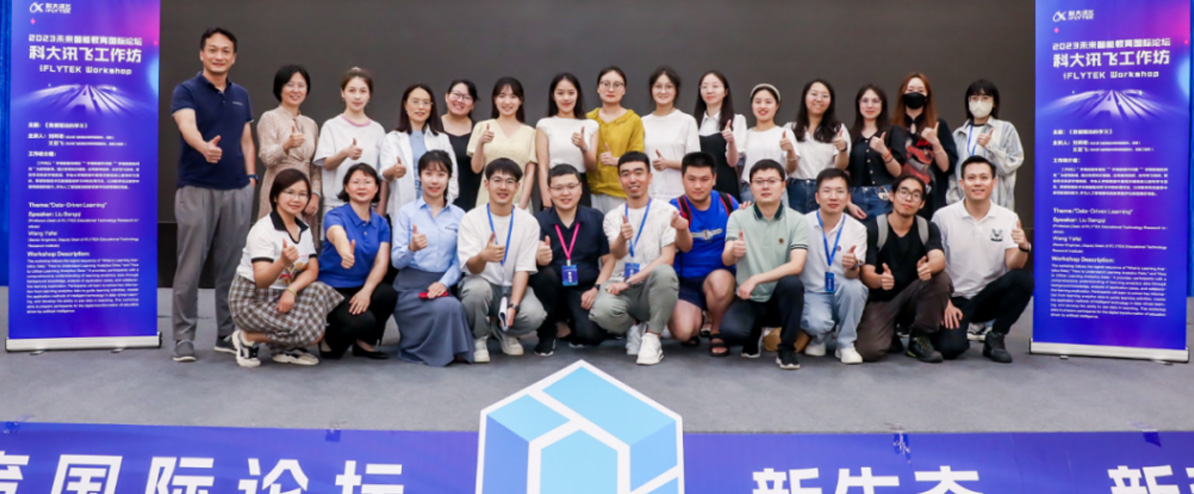
July 13, 2023
iFLYTEK Held Insightful Smart Education Workshop at the Future Intelligent Education International Forum 2023
The Future Intelligent Education International Forum 2023 & iFLYTEK Workshop jointly organized by the College of Education for the Future, the Beijing Normal University, and the iFLYTEK Educational Technology Institute recently concluded.
Held at the Lijiao Building of the Beijing Normal University, Zhuhai Campus with the theme of "Data-driven Learning," principals of primary and secondary schools, teachers, doctoral students, undergraduate students, as well as individuals in the education field, gathered to immerse themselves in the digital transformation of education. During the event, Professor Liu Bangqi, Dean of the iFLYTEK Educational Technology Institute, and Mr. Wang Yafei, Vice Dean and Senior Engineer of the iFLYTEK Technology Research Institute, gave special guest lectures to provide the audience with their professional insights on education.
The event included an iFLYTEK workshop focusing on "learning analytics data" and its interpretation and utilization. The workshop aimed to familiarize participants with learning analytics data, obtain key information for better learning, and apply intelligent technology in data-driven learning. These efforts will help improve their ability to use data in teaching and prepare them for the A.I.-driven digital transformation of education.
At the beginning of the workshop, Professor Liu Bangqi briefed the participants on the research achievements of iFLYTEK in data-driven learning and highlighted the importance of educational data in the era of A.I. He also gave an update on the company’s significant progress in the field of A.I., including with the development of the iFLYTEK Spark cognitive model. The core capabilities of this large model include text generation, language understanding, knowledge quizzing, logical reasoning, mathematics, coding, and multimodal ability. The staff demonstrated using the iFLYTEK Spark by answering questions in various scenarios, grading math test papers, and providing feedback on Chinese composition. The service’s outstanding performance in accomplishing these tasks highlights how A.I. technologies, represented by large language models (LLM), can play a key role in educational development and promoting individual growth.
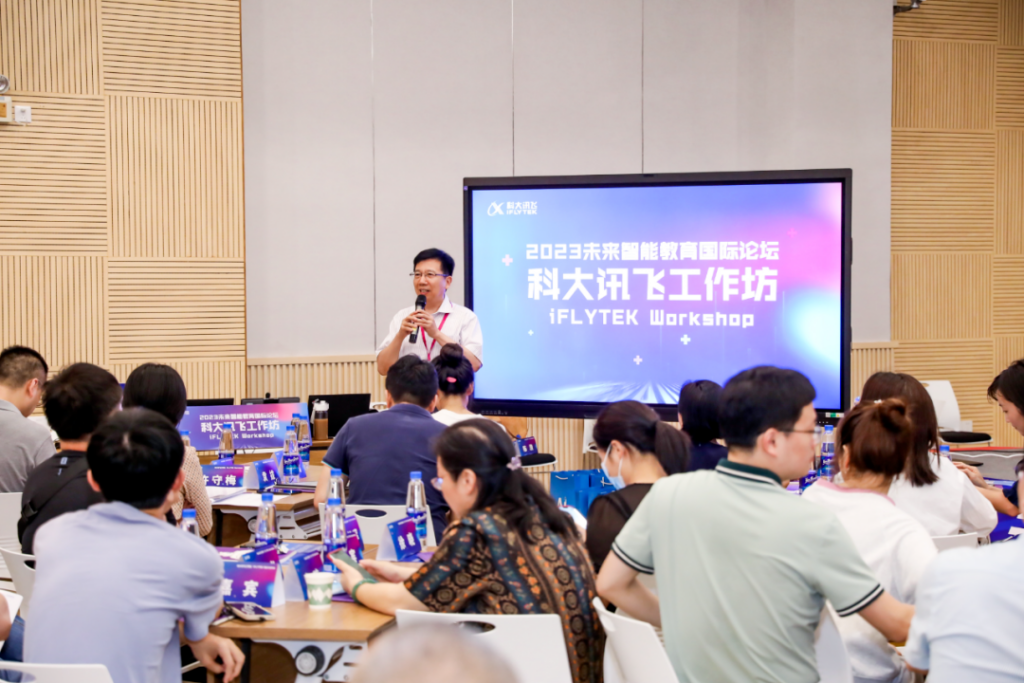
At the end of the workshop, each group conducted stratified teaching according to the scoring rate, shared their methods and criteria for stratification, and prepared targeted test questions for specific levels of students. Some groups stratified students based on the normal distribution of scores, while others followed the relevance of specific knowledge points and their scoring rates. Each group proposed its test paper design with different stratification methods, such as targeted reinforcement training for students’ areas of weakness or matching the test difficulty with students’ current academic levels.
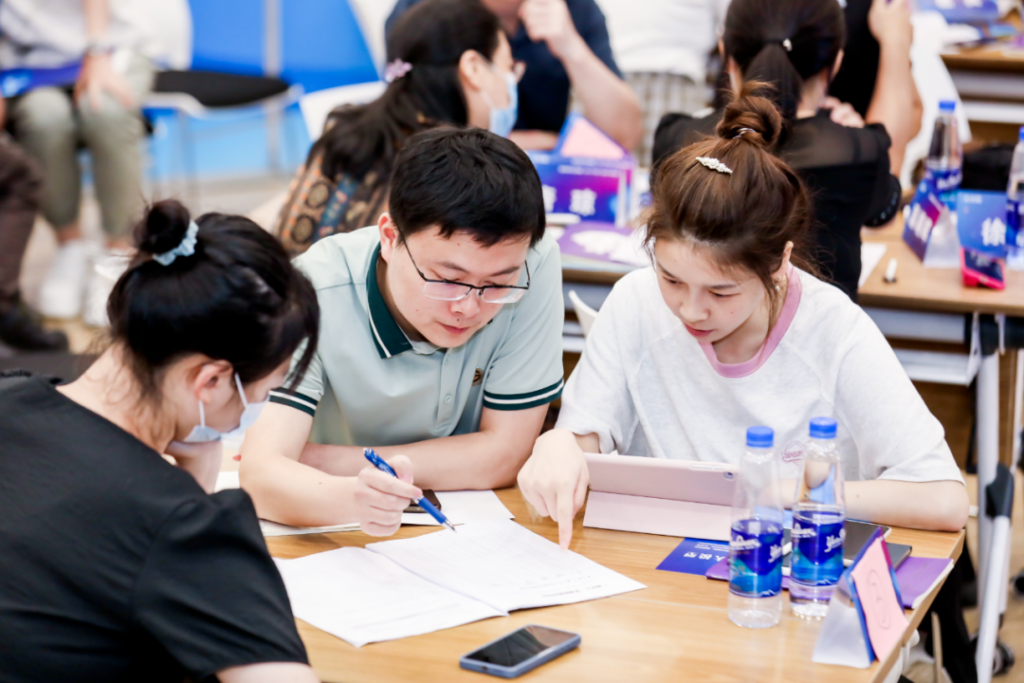
The workshop concluded successfully, centering on the application of learning analytics in real life and exploring key issues such as specific means and methods for learning analytics, and how stratified teaching can work. Through case analysis and group collaboration, the participants have mastered some core skills, including processing teaching data with intelligent technology and the mix of A.I. and teaching. This provides new perspectives and support for integrating technology and education and serves as a valuable reference for promoting educational models in the new era.
More News
-

 Industry First: Bluey and Other Classic English Animations Launch Exclusively on iFLYTEK AI Learning Machine
Industry First: Bluey and Other Classic English Animations Launch Exclusively on iFLYTEK AI Learning MachineJanuary 14, 2026
-

 iFLYTEK Showcases at the 2025 China International Travel Mart
iFLYTEK Showcases at the 2025 China International Travel MartJanuary 08, 2026
-

 2025 World University Presidents Forum Hosts "AI and Scientific Research Paradigms Shift"
2025 World University Presidents Forum Hosts "AI and Scientific Research Paradigms Shift"November 25, 2025
-

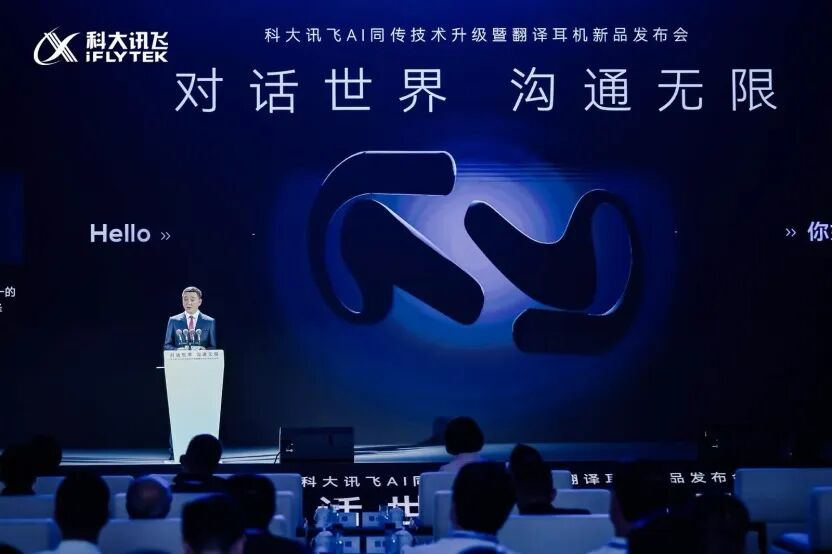 iFLYTEK Upgrades Simultaneous Interpretation Model and Launches iFLYTRANS Headsets in Shanghai and Dubai
iFLYTEK Upgrades Simultaneous Interpretation Model and Launches iFLYTRANS Headsets in Shanghai and DubaiOctober 31, 2025
-

 Spotlight on DMEXCO 2025: Join iFLYTEK AI Marketing to Shape the AI-Driven Future of Digital Marketing
Spotlight on DMEXCO 2025: Join iFLYTEK AI Marketing to Shape the AI-Driven Future of Digital MarketingOctober 22, 2025









